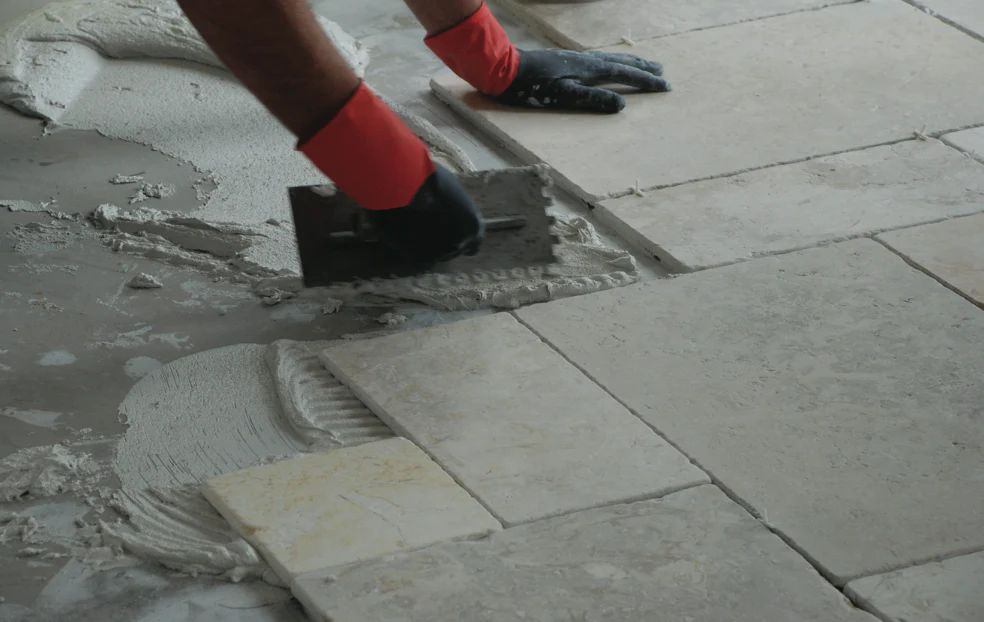When it comes to grouting your tiles, you’re faced with a decision: traditional grout or epoxy grout. While epoxy grout has its benefits, there are some aspects you may want to consider before making a choice. The allure of epoxy grout lies in its durability and stain resistance, but there are nuances that might make you pause.
Staining and Discoloration Issues
- Avoiding epoxy grout is crucial to prevent staining and discoloration issues in your tile installations. While epoxy grout is known for its durability and water resistance, it can be prone to discoloration over time if not properly maintained. Prevention methods play a significant role in ensuring the longevity and appearance of your tiled surfaces.
- To prevent staining and discoloration, it’s essential to apply a high-quality sealer specifically designed for your type of tile and grout. Sealers act as a protective barrier, preventing liquids and dirt from penetrating the grout and causing discoloration. Regularly cleaning your tiled surfaces with a pH-neutral cleaner and avoiding harsh chemicals will also help maintain the grout’s appearance.
- In addition to prevention methods, implementing proper maintenance techniques is crucial. Periodically inspecting the grout for signs of wear or discoloration and addressing any issues promptly can prevent them from worsening. By following these steps, you can ensure that your tile installations remain pristine and free from staining and discoloration problems.

Limited Color Options
- To maintain the pristine appearance of your tiled surfaces and address potential issues promptly, it’s crucial to consider the limited color options when opting for alternative grout choices. When choosing alternative grouts due to concerns such as staining or durability, you may encounter a drawback in terms of color options.
- Unlike epoxy grout, which offers a wide range of colors to suit various design preferences and tile choices, alternative grouts may have a restricted color palette. This limitation can pose challenges when trying to match the grout with different tile colors or achieve a specific aesthetic vision.
- Moreover, the limited color options in alternative grouts can impact the overall look of your tiled surfaces and may require more frequent maintenance to keep them looking clean and uniform. With limited durability and maintenance requirements, alternative grouts with fewer color choices may not provide the longevity and ease of upkeep that epoxy grout offers. Therefore, it’s essential to weigh the color options available when deciding on the best grout for your tiled surfaces.
Difficult Application Process
- Consider the intricate steps involved in the application process of alternative grouts, which may present challenges due to their unique properties and characteristics. When opting for epoxy grout, you must be prepared for a more complex maintenance routine. Epoxy grout requires careful mixing of resin and hardener to achieve the correct consistency, and any miscalculation can lead to issues with setting and durability.
- Due to its formulation, epoxy grout also has a longer drying time compared to traditional grouts. This extended curing period can be frustrating, especially when you need to use the tiled area soon after grouting. Moreover, the application process demands precision and efficiency to avoid uneven surfaces or excess grout residues. Working with epoxy grout requires a meticulous approach, as any mistakes can be challenging to rectify once the grout sets.
Higher Cost Compared to Traditional Grout
- When dealing with epoxy grout, it’s crucial to account for the higher cost associated with this option compared to traditional grout materials. While epoxy grout offers superior durability compared to conventional grout, this durability comes at a premium price.
- The initial outlay for epoxy grout may be higher due to the advanced chemical composition of the material, which provides exceptional resistance to stains, chemicals, and moisture. However, the long-term benefits of reduced maintenance and increased longevity can outweigh the upfront cost.
- Durability concerns are significantly addressed with epoxy grout, as it’s highly resistant to cracking, shrinking, and staining. This robustness ensures that your tiled surfaces maintain their integrity and appearance over time, even in high-traffic areas or spaces prone to moisture exposure.
- The enhanced durability of epoxy grout minimizes the need for frequent repairs or replacements, ultimately saving you money in the long run. Additionally, the maintenance requirements for epoxy grout are minimal, as its non-porous nature prevents the growth of mold and mildew, simplifying cleaning tasks and preserving the aesthetics of your tiled surfaces.
Potential Health Risks
- Using epoxy grout in your tiling projects may pose potential health risks due to its chemical composition and application process. Epoxy grout contains toxic chemicals such as epichlorohydrin and amines, which can cause respiratory concerns when inhaled during the mixing and application stages. These chemicals have been linked to irritation in the respiratory tract, leading to symptoms like coughing, shortness of breath, and chest tightness.
- Prolonged exposure to these toxic substances can exacerbate respiratory conditions such as asthma or bronchitis. Additionally, the fumes released during the curing process of epoxy grout can further irritate the respiratory system and may cause discomfort for individuals sensitive to airborne pollutants. To minimize the risk of respiratory issues when working with epoxy grout, it’s crucial to use proper ventilation, wear appropriate personal protective equipment such as respirators, and follow recommended safety guidelines. Prioritizing safety measures can help mitigate the potential health hazards associated with using epoxy grout in your tiling projects.
Conclusion
In conclusion, it’s recommended to avoid using epoxy grout due to its tendency to stain and discolor, limited color options, difficult application process, higher cost compared to traditional grout, and potential health risks. It’s advisable to opt for alternative grout options that offer more flexibility, ease of use, and cost-effectiveness in the long run.